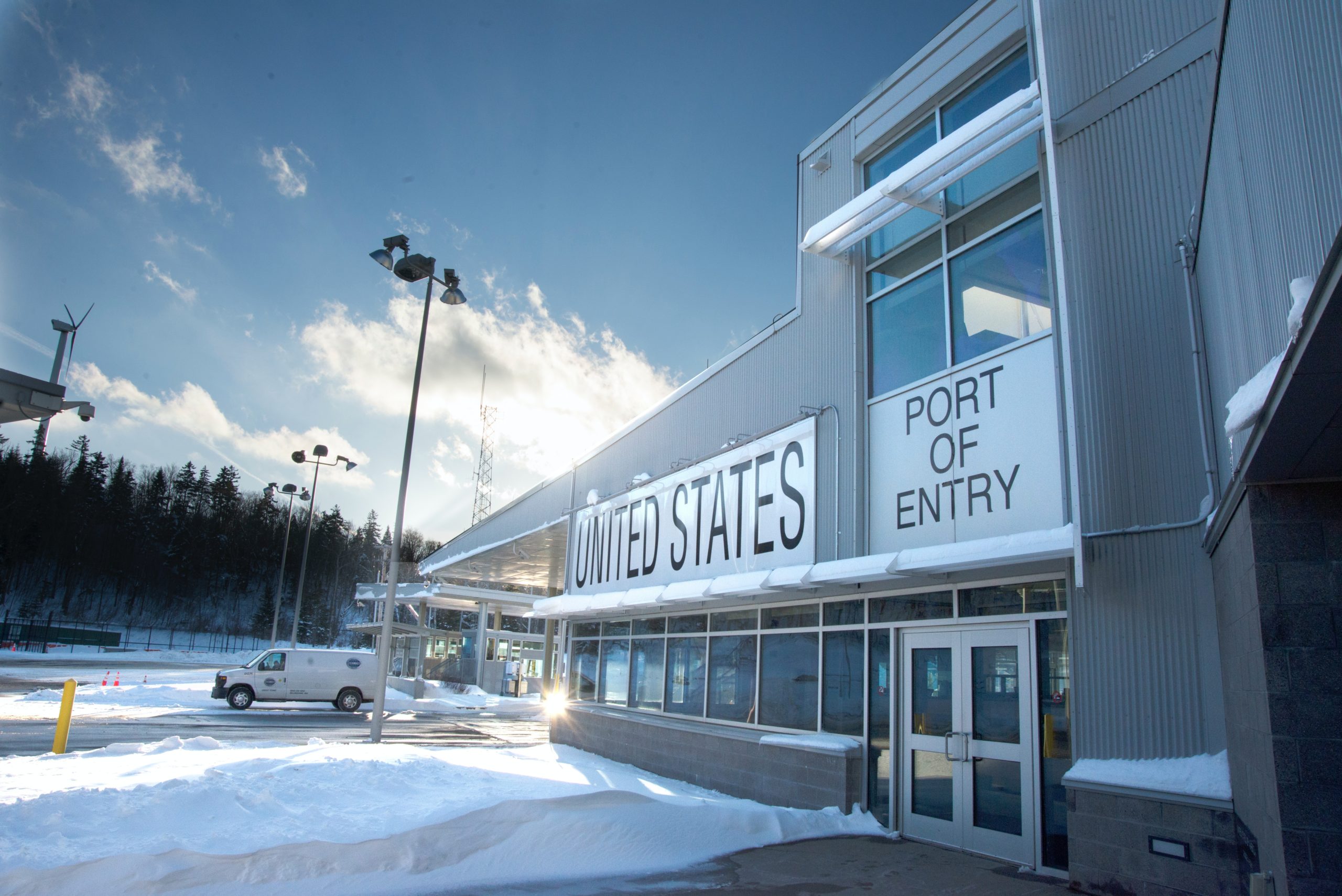Many immigrants arrived in the U.S. without lawful admission in search of a better life for themselves and their family. Unfortunately, most began to accrue unlawful presence upon arrival. Current immigration laws present significant challenges for these immigrants by placing them in a Catch 22 scenario where they are first required to leave the country to receive lawful permanent residency, yet, in doing so, immigration laws impose either a three- or ten-year admissibility bar when they leave the U.S. This is where the unlawful presence I-601A provisional waiver can be extremely beneficial.
The provisional waiver process provides an option for eligible immigrates to seek a waiver (“perdon”) while remaining in the U.S. instead of waiting outside of the U.S. Such a waiver is based on the extreme hardship a U.S. citizen or lawful permanent resident (a) spouse or (b) parent would suffer if the immigrant was not admitted as a lawful permanent resident.
Although the provisional waiver process presents a great opportunity for many, it is crucial to have an immigration attorney determine any other potential grounds of inadmissibility, explore all possible forms of extreme hardship, and obtain supporting documentation before submitting a provisional waiver.
Consular Processing
If an immigrant does not qualify to apply for permanent residency in the U.S. through adjustment of status, they must be processed for an immigrant visa at a U.S. embassy or consulate abroad. This procedure, known as consular processing, includes the taking of biometrics, as well as undergoing a medical examination and being interviewed by a U.S. consular officer.
Normally, it takes only a few days for these procedures to be completed and the immigrant visa to be issued, after which the immigrant may enter the U.S. as a lawful permanent resident. However, if the consular officer conducting the interview determines that the immigrant is inadmissible, they will be refused the visa. If the ground is waivable, they must remain abroad until a Form I-601, Application for Waiver of Grounds of Inadmissibility, is filed, adjudicated, and granted, and the approval is forwarded to the consulate.
Unlawful Presence Bar
Immigrants who have accrued more than 180 days, but less than one year, of unlawful presence and then depart the country trigger a three-year bar to readmission. Immigrants who have accrued one year or more of unlawful presence and then depart the country trigger a ten-year bar to readmission. Immigrants usually begin to accrue unlawful presence when they enter the U.S. without inspection or stay in the U.S. beyond an authorized period. Note that there are a number of exceptions to the accrual of unlawful presence in these situations, and an immigrant who is out of lawful status is not necessarily accruing unlawful presence (beyond the scope of this blog).
The provisional waiver I-601A process is available only to immigrants seeking a waiver based on the unlawful presence ground of inadmissibility. Immigrants who have accumulated more than one year of unlawful presence in the aggregate, depart the U.S., and then reenter illegally or attempt to reenter illegally trigger a separate ground of inadmissibility called the “permanent” bar. They are not eligible to submit a provisional waiver.
Other common grounds of inadmissibility that could be uncovered during the consular interview, and thus result in revocation of an approved provisional waiver, include smuggling, health-related grounds (e.g., prior DUIs or use of marijuana), criminal conduct, public charge, fraud, and false claims of U.S. citizenship.
Purpose of the Waiver
The provisional waiver I-601A program provides a process by which the U.S. Citizenship and Immigration Services (USCIS) will adjudicate waivers of unlawful presence before immigrants depart the U.S. for their immigrant visa interview. The purpose is to reduce the time the immigrant is separated from family and to limit the uncertainty of the waiver process.
After the provisional waiver is approved and the consular interview is scheduled, an immigrant who is eligible for an immigrant visa can travel abroad for the interview with the knowledge that there will likely be no delay in the issuance of the immigrant visa. The reason that the waiver is approved on a “provisional” basis is because the U.S. Department of State (DOS) will still conduct its own investigation as to potential inadmissibility based on other grounds, as well as verify eligibility for the underlying visa. If the immigrant is determined to be inadmissible based on another ground, the provisional waiver will automatically be revoked.
Eligibility
The provisional waiver I-601A adjudication procedure is available to all immigrant visa applicants who will be found inadmissible based on unlawful presence–and no other ground–and who can establish extreme hardship to a U.S. citizen or LPR (a) spouse or (b) parent.
Parents of U.S. citizen children over the age of 21 are unlikely to be eligible for the provisional waiver, unless they in turn have a U.S. citizen or LPR (a) spouse or (b) parent. A U.S. citizen or lawful permanent resident child is never considered a qualifying relative. Those who do qualify would likely be basing the extreme hardship to a parent.
To be eligible, the provisional waiver applicant must also meet the following requirements:
- Have an approved immigrant visa petition (Form I-130, Petition for Alien Relative; Form I-360, Petition for Amerasian, Widow(er), or Special Immigrant; or Form I-140, Immigrant Petition for Alien Worker) or be selected to participate in the Diversity Visa Program under Immigration and Nationality Act (INA) §203(c);
- Have a pending case with DOS and have paid the immigrant visa fee bill with the National Visa Center (NVC);
- Not be an applicant for adjustment of status;
- Not be inadmissible under any other ground of inadmissibility;
- Not be in removal proceedings (where no final order has been entered) unless those proceedings have been administratively closed and not been re-calendared at the time of filing the provisional waiver;
- Not be subject to a final order of removal, deportation, or exclusion unless USCIS has already granted the applicant’s Form I-212, Application for Permission to Reapply for Admission into the United States After Deportation or Removal;
- Not be subject to a prior order of removal that has been reinstated by Customs and Border Protection (CBP) or Immigration and Customs Enforcement (ICE);
- Be at least 17 years old; and
- Be present in the United States at the time of filing the waiver application and biometrics collection.
After the provisional waiver is approved and the immigrant has submitted all necessary documents, including the Form I-864, Affidavit of Support, the NVC will schedule an immigrant visa interview at the consulate or embassy. The immigrant visa interview will be scheduled after the immigrant has submitted the required documents to the NVC; scheduling is dependent on backlogs at the designated consulate or embassy. The approval of a provisional waiver does not provide permission to remain in the U.S. or grant legal status; prevent the accrual of unlawful presence; or provide eligibility for employment authorization, advance parole, a driver’s license, or a Social Security card.
If the provisional waiver is denied by USCIS, the agency will not automatically institute removal proceedings. However, the immigrant will be subject to the current USCIS policy on the commencement of removal proceedings in certain circumstances.
Extreme Hardship to U.S. Citizen or LPR Spouse or Parent
Applicants for the I-601A provisional waiver for unlawful presence must demonstrate extreme hardship to a U.S. citizen or LPR (a) spouse or (b) parent, who are considered “qualifying relatives.” The qualifying relative is required to submit a statement certifying under penalty of perjury the decision to either relocate with, or to separate from, the immigrant in the event the waiver is denied.
The term “extreme hardship” is not defined in the statute or the regulations. Instead, the term remains purposefully fluid and vague. Extreme hardship means “more than the usual level of hardship that commonly results from family separation or relocation.”
Although any factors will be considered, the five most common facts include: (1) family ties and impact; (2) social and cultural impact; (3) economic impact; (4) health conditions and care; (5) and country conditions.
Filing Fees
At the time of this writing, the provisional waiver filing fees are $630, plus an additional $85 for biometrics.
Join our Newsletter to stay up to date on the issues that matter to you by clicking here.

Albert Mendoza
At Albert Mendoza Law, you will receive the legal representation you need and deserve.




